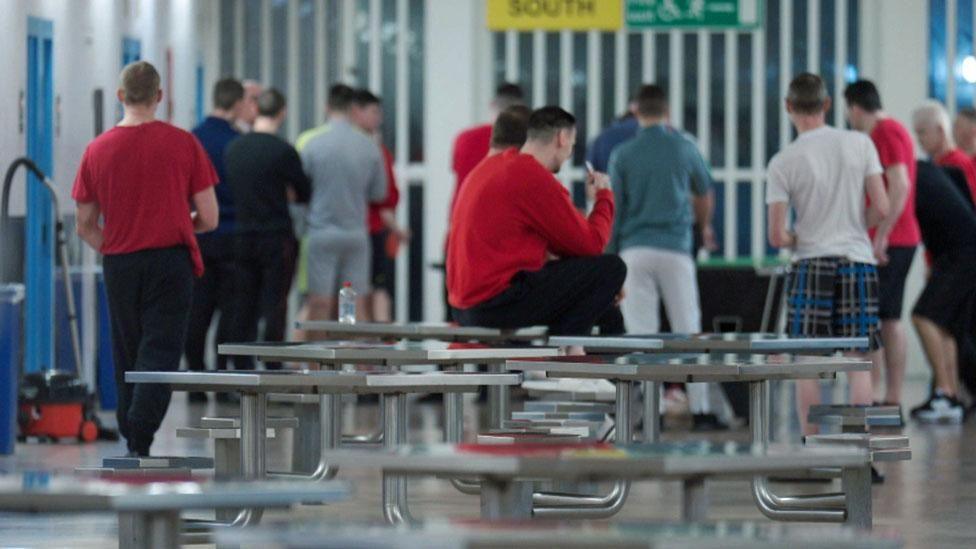Would removing foreign prisoners ease pressure on jails?
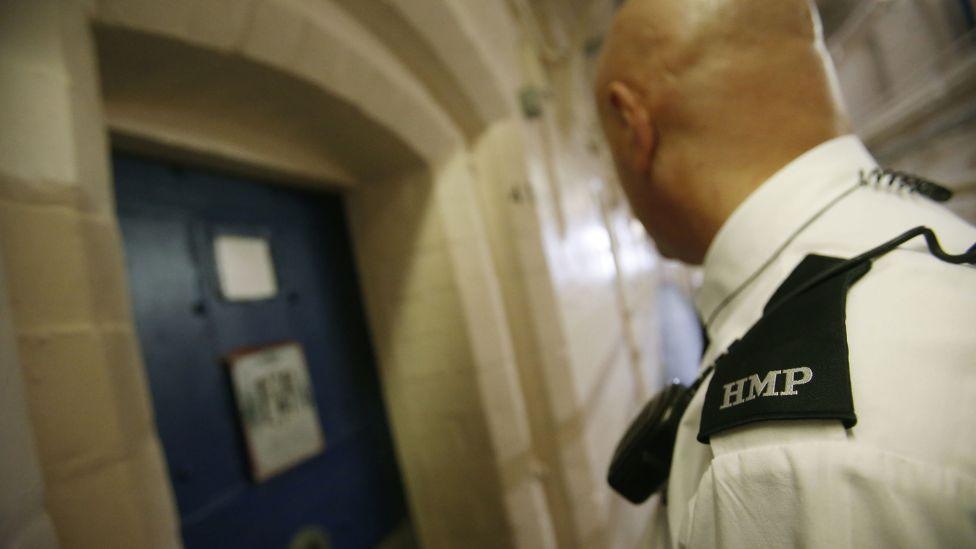
- Published
With Scotland's prison population approaching "crisis" point, the Scottish government has tabled plans to let more prisoners out early.
The Scottish Conservatives say victims are being "betrayed".
Their leader, Russell Findlay, has also suggested that SNP ministers could free up space by doing more to remove foreign nationals from jails.
The Scottish government says that is a matter for the UK government - although it is "actively engaging" with Sir Keir Starmer's government on the issue.
How overcrowded are Scotland's prisons?
The target operating capacity of Scotland's prisons is 8,007. As of 8 November, external, there were 8,273 inmates in jail.
Overcrowded prisons can be dangerous for inmates and staff, as well as harming the prospects of rehabilitation.
The problem is not isolated to Scotland, which along with England and Wales has a higher proportion of citizens in prison than most other countries in Europe.
Both north and south of the border, emergency measures have been used to let inmates out early - with mixed results.
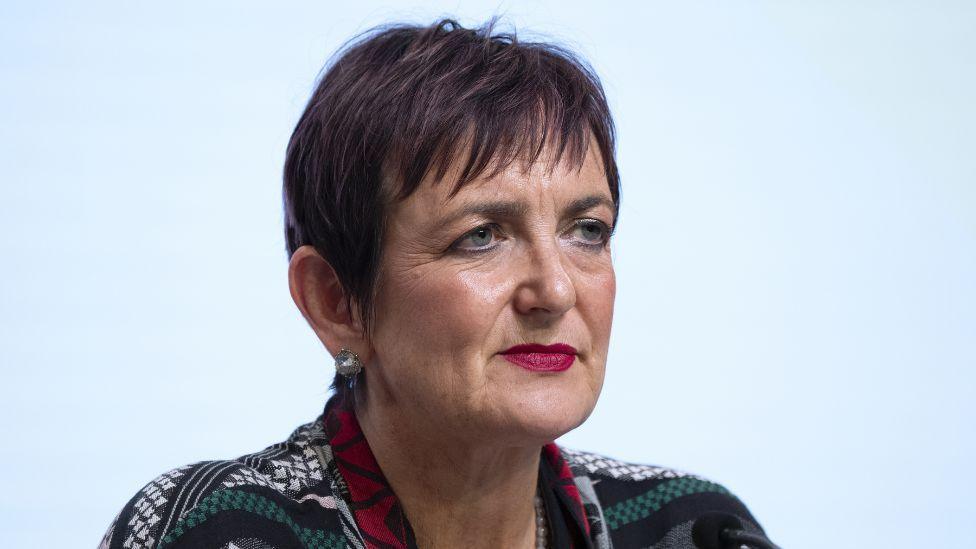
Scottish Justice Secretary Angela Constance defended the government
Hundreds of Scotland's prisoners were released early in June and July but by September, the number of inmates had climbed to 8,241 - higher than it was before the emergency release began.
The government is now is hoping to pass emergency legislation that would allow between 260 and 390 prisoners to be freed early in February.
The new law would let people sentenced to less than four years be released after serving 40% of their sentence, rather than the current 50%.
How many foreign nationals are in Scotland's prisons?
Figures show there were 629 foreign nationals in Scotland's jails, external as of the beginning of October – about 7.6% of the prison population. Only about half, 325, had been convicted of a crime.
Findlay, speaking to BBC Scotland News, acknowledged foreign nationals made up a small part of the prisoner population - and that the UK government was responsible for deportations.
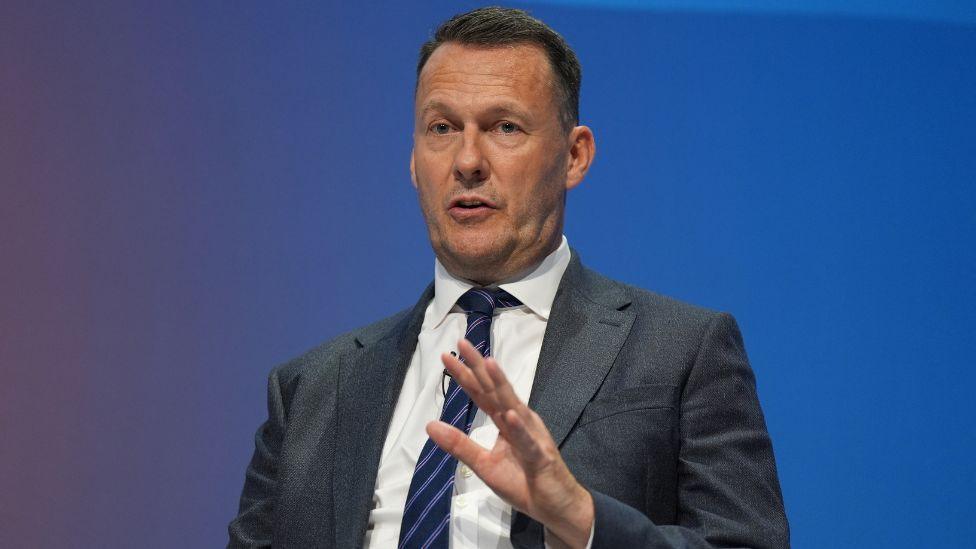
Scottish Tory leader Russell Findlay says new measures to release prisoners are a "betrayal" of victims
But he questioned what work the Scottish government was doing to identify foreign inmates, speaking to their countries of origin and exploring options to return them there to see out the remainder of their sentence.
He added: "Yes it’s a reserved matter but these all go through the Scottish courts and I do wonder whether the Scottish government have even given it any consideration or asked these tough questions.”
Justice Secretary Angela Constance said that Westminster was in charge of deportations, but that Scottish ministers were "actively engaging" with the UK government to identify ways to "increase the efficiency" of plans to reduce prison populations.
What are the rules for foreign inmates?
The UK Home Secretary has a legal duty to deport non-British, non-Irish nationals criminals sentenced to at least 12 months in jail, with certain exceptions.
There is also ministerial discretion to deport foreign nationals for lesser offences if it is “conducive to the public good”.
All foreign prisoners are referred to the Home Office to consider whether deportation is legally required, or appropriate if not required.
Foreign inmates serving sentences in England and Wales are able to leave jail up to 18 months before their sentence is finished if they are being deported.
Labour ministers say they are considering ways to speed up the scheme, including potential options to bring forward the point of early removal from the UK.

UK government Justice Secretary Shabana Mahmood says the UK government is exploring ways to speed up the process of removing foreign nationals from prisons
UK government Justice Secretary Shabana Mahmood told the Commons earlier this month, external that she believed "deportation for somebody who has been convicted and is due to be imprisoned in our country is as good a punishment as serving time in a prison in this country".
Foreign offenders facing deportation can be a awarded a resettlement grant of up to £1,500 if they co-operate with the removal process.
Prisoners can also be transferred to their home country to serve the balance of their sentence there, though this is less common.
Since 2010, the UK has transferred, external 945 foreign offenders to 50 countries and territories.
The Scottish government says UK ministers are "entirely responsible" for deportations, transfers of foreign offenders and the early removal scheme.
Scottish ministers have a discretionary power to release certain offenders up to 180 days early, once they have served a quarter of their sentence, to "facilitate their removal" by UK authorities.
A spokesperson said: "Between October 2023 and October 2024, 17 prisoners were released from Scottish prisons via the early release scheme.
“The Scottish government is aware of proposed changes to the early removal scheme in England and Wales and we are engaging with the UK government on this.”
What is the solution?
The crisis facing Scotland's prisons evidently extends well beyond a few hundred foreign inmates.
The Scottish government is hoping to pass its latest proposals into law by next week via an accelerated emergency bill in parliament.
Findlay says SNP ministers have failed to build new prisons, reform community sentencing and invest in technology, such as alcohol monitoring tags used in other parts of the UK.
Constance defended the government's record, highlighting revamped community payback orders, electronic monitoring, home detention curfews and bail and release reforms.
She said while the government was seeking an "immediate" cut in prisoner numbers, it also needed a "sustained" decrease.
While acknowledging that inmate numbers need to be reduced, Victim Support Scotland called for "tangible" action to protect members of the public.
Chief executive Kate Wallace said: “Solutions need to be focused on preventing the cycle of reoffending by prioritising evidence-based rehabilitation programmes, effective supervision measures with appropriate resourcing so that offenders can be safely managed in our communities, and a focus on robust risk assessment so that dangerous prisoners, those who pose a risk, are not released.”
Fergus McNeill, professor of criminology at the University of Glasgow, told the BBC there was an urgent need for a reduction of inmates.
He said: “Prisons are so overcrowded that they are dangerous for people that live in them and for people that work in them, they're ineffective in terms of rehabilitation and reintegration, and they're wasting large amounts of public resources."
Long-term, the criminologist said, funds should be directed away from prisons and into communities and agencies that aid inmates once they are freed.
He said: “What we should be doing is reducing the present population fairly dramatically in Scotland, so that we're in line with other European countries, and at the same time moving money out so that we're better equipped to support people in the community.”
Related topics
- Published19 November 2024
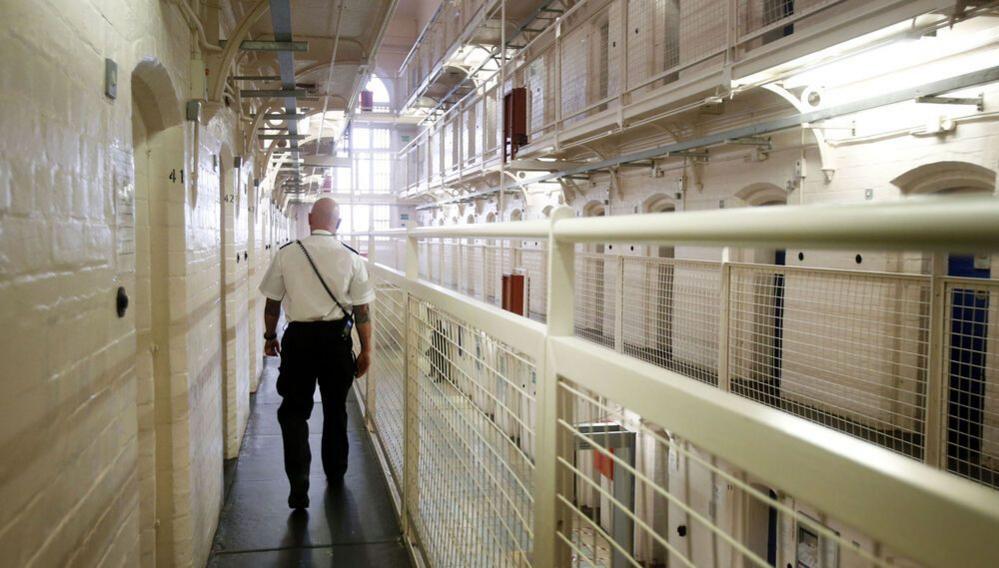
- Published11 October 2024
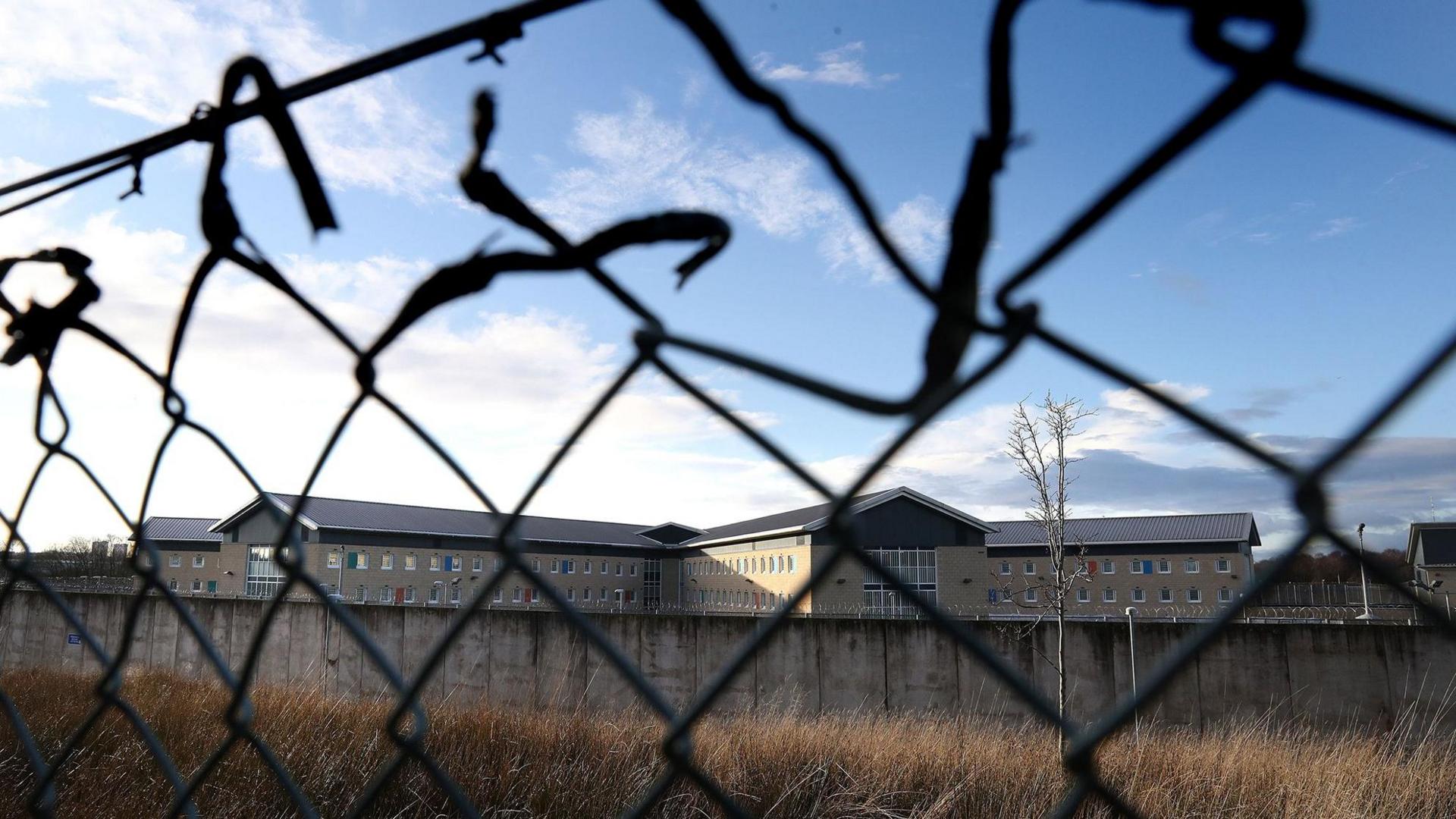
- Published11 September 2024
